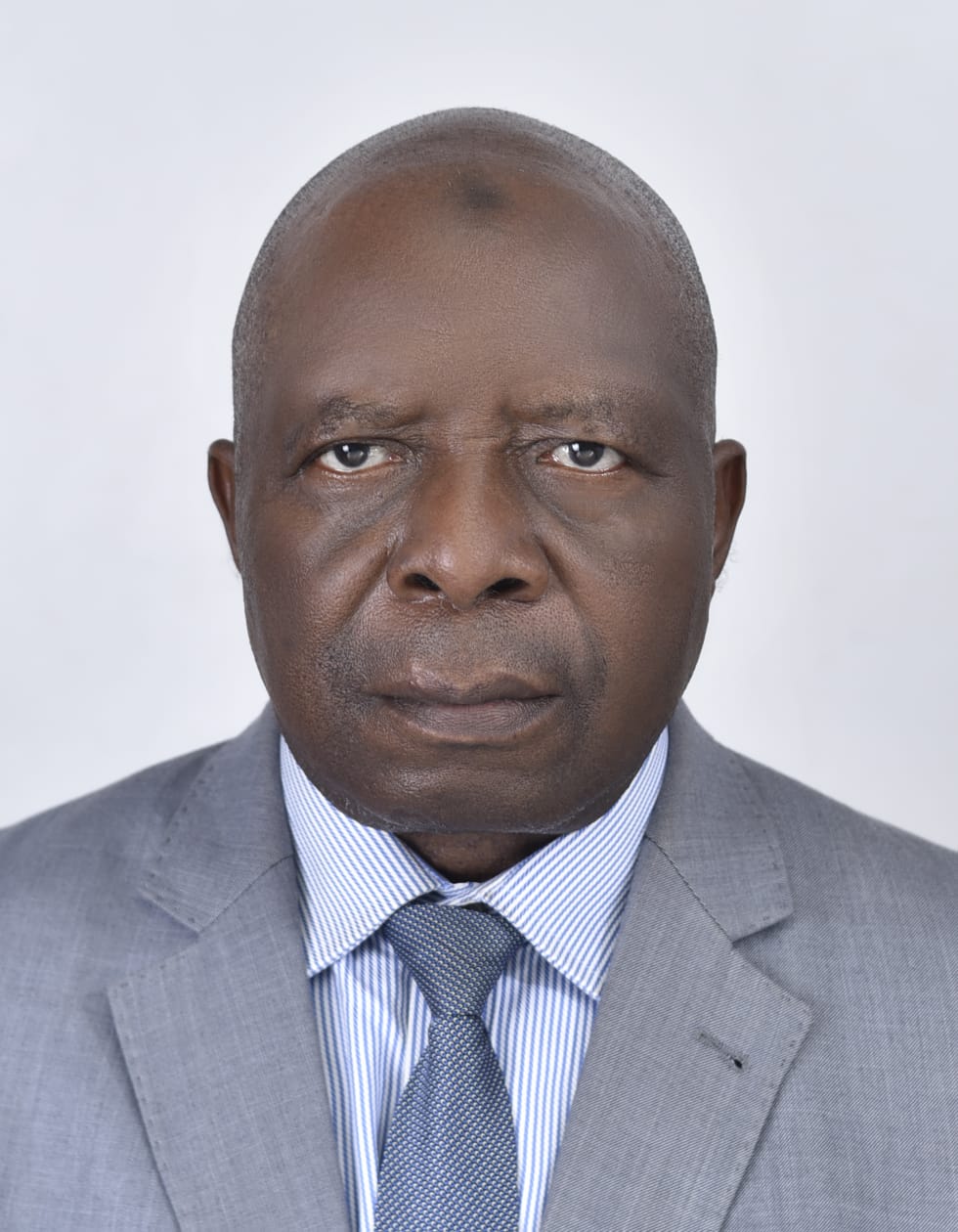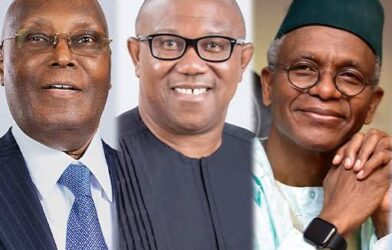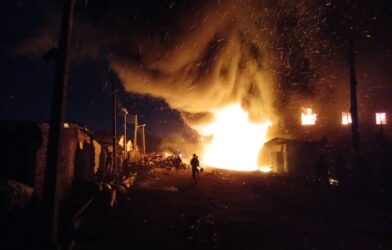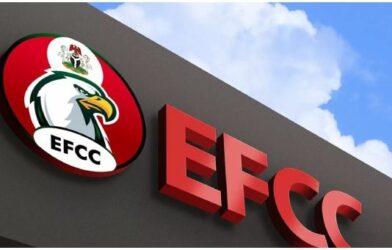536
Mali, Burkina Faso and Niger, the three Alliance of Sahel States, with the French acronym AES have so far rebuffed overtures from ECOWAS and the rest of the international community to return to the regional bloc after their threat to withdraw.
This has put the future of the ECOWAS grouping in doubt. The bad situation in the politically restive region with the military takeovers of civilian governments in Mali, Guinea and Burkina Faso, only got worse with the 26 July 2023 coup in Niger.
No doubt, ECOWAS has made tremendous progress with some laudable achievements since its formation through the May 1975 Treaty of Lagos. The achievements include its flagship 1979 Protocol on the Free Movement of Persons, Goods, Services and Right to Establishment, which allows community citizens visa-free movement and the right to stay in a country other than their own for 90 days.
In addition, community citizens are free to establish businesses and reside in other member States under liberal conditions. There are also the ECOWAS Passport and Biometric Identification Card Scheme, and the ECOWAS Trade Liberalisation Scheme, which allows duty-free export of goods within the regional market of over 420 million people.
The official intra-ECOWAS trade hovers between 11% and 15%, but thanks to the large volume of informal trade by itinerant traders, Nigerian goods, for instance, have become common attractions in the markets of other ECOWAS member countries and vice versa.
ECOWAS membership has also enabled members to increase the volume of their products and services in the region, with Nigeria, the regional powerhouse, with more than half of the ECOWAS population and the biggest financier, contributing more than 60% of the ECOWAS annual budget.
ECOWAS has recorded the most progress in conflict prevention, resolution, management and maintenance of regional peace. It restored peace to Liberia, Sierra Leone, Cote d’Ivoire, The Gambia, Guinea and Guinea Bissau, among its member states challenged by conflicts.
ECOWAS has also achieved measurable success in regional infrastructure development such as the Lagos-Abidjan Highway, the West Africa Gas Pipeline and the electricity power and sustainable energy projects.
ECOWAS, as the most active of Africa’s eight Regional Economic Communities (RECs), is also expected to play a pivotal role in the success of the African Continental Free Trade Area (AfCFTA) project aimed at increasing the volume of continental trade and boosting economic development and industrialisation. Ghana, and ECOWAS member state, hosts the AfCTA Secretariat.
However, the future of ECOWAS is severely threatened by insecurity, characterised by terrorism, jihadist and separatist insurrections, renewed incursion of the military into politics and the AES decision to leave the regional bloc.
For more than a decade, political instability and insecurity have heightened in Mali, Burkina Faso and Niger and the coups in those countries could be linked to instability in the Sahel, following the murder of Libyan leader Col. Muammar Gaddafi in 2011 in the French-led NATO intervention.
Subsequently, Mali became the epicentre of terrorist threats in the Sahel, from where armed groups spread into neighbouring ECOWAS states of Burkina Faso and Niger.
Gaddafi was able to engage the separatist Tuareg militia on a monthly salary when he was in power. After his death, the armed groups migrated and settled in large numbers with their weapons in northern Mali and Niger. Drug trafficking, kidnapping for ransom and other violent crimes took hold of the ungoverned space.
Before long, the Tuaregs reignited their armed rebellion for the state of AZAWAD in Northern Mali. ECOWAS through its Early Warning system, informed Mali and Niger about this dangerous development and advised that the militiamen be disarmed, trained and integration into the society.
While Niger heeded this ECOWAS advice and took some measures, Mali was adamant, and instead, former President Amadou Toumani Toure, reportedly paid the returning militiamen millions of dollars for pacification.
With this development, Mali and its vast porous borders with seven other countries became a haven for the armed groups including Al Qaeda, ISIS and other terrorist groups from North Africa and the Middle East.
The armed groups provided fertile ground for criminals and drug barons and became so powerful to form a separate government in northern Mali, outside the control of successive Bamako governments.
Under that state of anarchy, Capt. Amadou Sanogo seized power in the 2012 military coup, but with the intervention of Nigeria, ECOWAS and France, the coup leader and his group were persuaded to leave office, paving the way for the 2013 election which brought President Mamadou Boubocar Keita to power. He was re-elected in 2018 but was toppled in another coup led by Col. Assimi Goita in 2020.
Other causes of the political crises in the ECOWAS region include bad governance, corruption, arbitrary change of national constitutions, vote rigging and human rights violations by the civilian leaders, who also failed to end insecurity in their countries.
These factors and the lust for political power by the coup makers led to the epidemic of military takeovers from the civilians in Mali, Burkina Faso, Guinea and Niger and compounded by the refusal of the junta leaders to abide by provisions of the ECOWAS 2001 Supplementary Protocol on Democracy and Good Governance.
The sanctions imposed on the junta-led countries and the threat by ECOWAS to intervene militarily to restore constitutional order in Niger did not go down well with coup makers.
The three AES countries accused ECOWAS of imposing inhumane sanctions and failing to assist them in fighting terrorism and insecurity. They also charged ECOWAS with deviating from its “founding principles and of being teleguided by foreign powers,” especially France.
Even after ECOWAS lifted the sanctions and pulled back on the military intervention in Niger, the three AES countries have remained adamant.
Ironically, the three countries are still members of the eight-nation West African Economic and Monetary Union, UEMOA, all members of ECOWAS, set up by France and also still using the franc CFA currency controlled by the French Treasury.
From the long transition timetables announced by the junta leaders with the provision that they will be eligible to contest in the transition elections to civilian rule, it is obvious that the soldiers are bent on perpetuating themselves in power while avoiding reprimand by ECOWAS.
They may have expelled troops from EU countries led by France, and America, but the three landlocked countries, considered among the poorest in the World have also embraced Russian troops in their territories.
Doubtless, the consequences of the exit of Mali, Burkina Faso and Niger from ECOWAS will affect integration and stability in West Africa and the Sahel regions, including potential impacts on the free movement of persons, goods, services and right to establishment.
The importance of the three in agriculture will also be felt – Niger is a key supplier of onions and Burkina Faso exports large quantities of tomatoes and other fruits and vegetables to the regional markets.
Another fallout will be the potential exodus of citizens of the three states from the other ECOWAS member states with more than five million Malians, Burkinabes and Nigeriens in Côte d’Ivoire and many Nigeriens in Ghana, Togo and Benin, who may be forced to return home. The AES countries will lose millions of dollars of ECOWAS-negotiated trades and projects and could be forced to retaliate by expelling ECOWAS citizens from their territories.
Another consequence is that the AES states could enter into alliances with countries which might be unfriendly with ECOWAS, raising the danger of jeopardising regional security and integration.
Part of the security implication of the AES withdrawal is that the coastal states of ECOWAS could suffer the influx of terrorists from the Sahel and North Africa, further complicating the security situation in both regions.
Other benefits which the AES group could lose, include the withdrawal of their citizens working in ECOWAS institutions and their candidates seeking positions in international organisations such as the United Nations will no longer enjoy the usual ECOWAS consensual solidity and support.
While the AES countries insist on their immediate withdrawal from ECOWAS, the regional organisation is following its protocol which provides for a 12-month notice for withdrawal as happened with Mauritania, which served notice in 1999 and only left in 2000.
So, the opportunity is still available for both sides to engage to resolve their differences diplomatically, particularly with the decision by ECOWAS 7 July Summit in Abuja nominating the Presidents of Senegal, Benin and Togo as mediators to bring the three breakaway states back into the fold.
President Diomaye Faye of Senegal had already started the troubleshooting before his appointment, following his meeting with Nigerian President Bola Tinubu, the re-appointed Chairman of the ECOWAS Authority of Heads of State and Government.
However, there is serious doubt if the Presidents of Benin and Togo who are nursing third-term ambitions and were absent at the Abuja Summit, would be effective on this assignment. Both countries are currently at loggerheads over retaliatory border closures threatening their diplomatic relations. Togo is also secretly collaborating with the junta-led countries.
One viable option for ECOWAS is to allow the AES countries to continue with their alliance while still members of ECOWAS. The three are still UEMOA members, and with ECOWAS membership.
Other precedents are members of the Mano River Union, the Co-Prosperity Alliance Zone of West Africa, and the Council of Understanding, Counsiel de l’Entente in French, all pursuing common goals and objectives while retaining their ECOWAS membership.
The three AES countries as ECOWAS member states also belonged to the EU-supported G-5 Group of Sahel nations fighting terrorism.
ECOWAS and the AES must prevent turning the region into a proxy war theatre, especially with foreign powers like Russia, China, Turkey and others hoovering to establish footholds in West Africa and the Sahel. Also, replacing one foreign power with another will not guarantee solution to the security problem serve the region’s interests.
ECOWAS and the AES leaders must be reminded that their countries will be more effective in protecting their interests as a collective instead of working in silos.
Now that the AES’ concerns regarding ECOWAS sanctions and the threat of military intervention in Niger have been lifted, the junta leaders must show good faith and convince critics that their decision to withdraw from ECOWAS is not solely to avoid scrutiny or for power grab.
Most importantly, coup makers should not be allowed to benefit from their unconstitutional change of government through self-succession.
Nigeria as the current Chairman should reassert its leadership in ECOWAS and lead by example.
ECOWAS leaders must take a serious look at the regional Protocol on Democracy and Good Governance and ensure a rule of thumb application and compliance with its provisions, especially the zero-tolerance for all unconstitutional changes of government.
Constitutional or political and ballot-box coups are as dangerous and condemnable as military coups, and all coups and other anti-democratic behaviour must be met with the same severe consequences if ECOWAS is to restore its dented integrity.
ECOWAS must ensure that member states respect and comply with regional protocols and uphold international standards and best practices of democracy and good governance.
Ambassador Ali Ocheni was Nigeria’s Consul General in Shanghai, People’s Republic of China and former Head of the ECOWAS National Office in the Nigerian Foreign Affairs Ministry.















Comments are closed